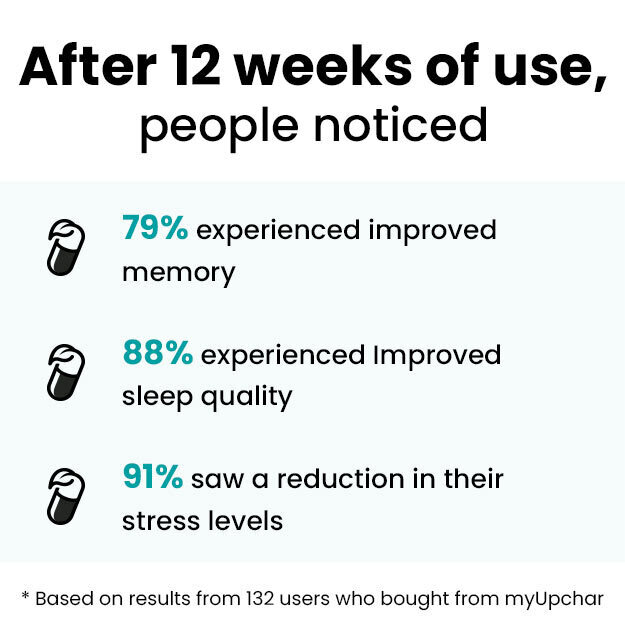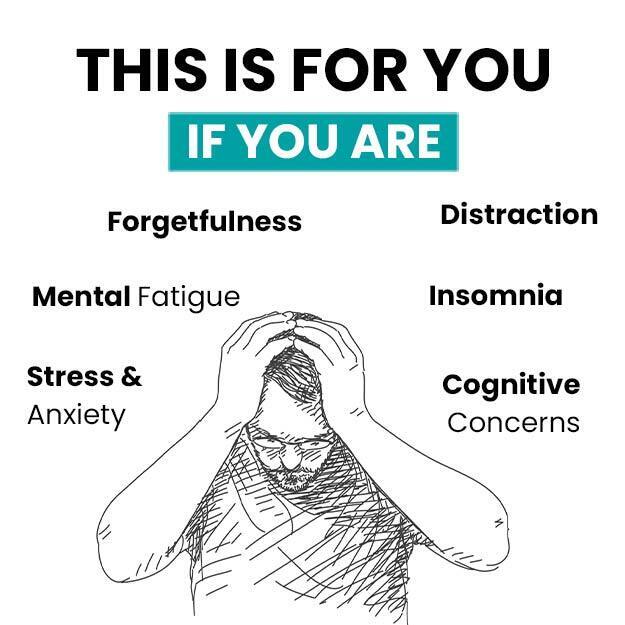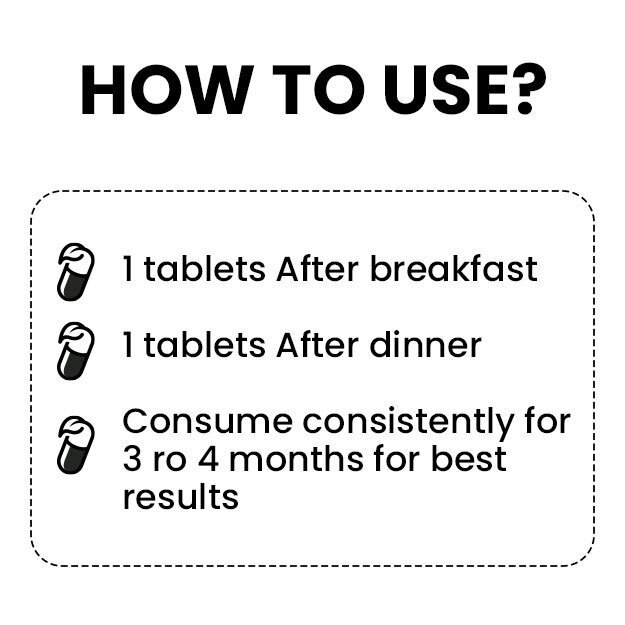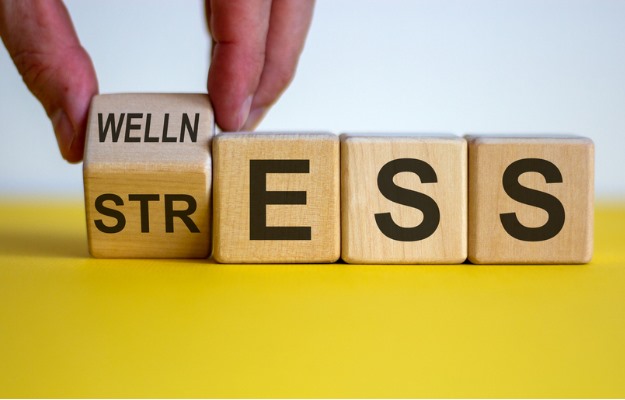The increasing amount of workload at home as well as at work is bound to make one feel stressed and anxious about it. While some amount of anxiety in one's life is quite normal, it should never be something that ends up overwhelming a person, which can lead to even more complications, physically as well as mentally.
Anxiety and stress are natural feelings you face when confronted with uncertainty about the future or dangers—physical or psychological. Some amount of stress can actually help you focus more on the job at hand, motivate you to do better or even makes you analyse and become more self-aware (this type of good stress is known as eustress).
However, it can sometimes become too much to deal with, especially due to the rising amount of chaos in our daily lives. Which is why it is important to understand one's own limitations and recognise when it is getting too much to deal with. If it goes unchecked, anxiety or stress can snowball and set in deep into the psyche of an individual, leading to more serious mental health problems.
Some of the signs people show when they are dealing with chronic stress and anxiety are becoming agitated, nervous, tense or fidgety. In some cases, their heart may start racing or they may experience some amount of pain in the chest.
A study to ascertain the burden of mental disorders across the various states of India looked at data from 1990 to 2017, and found that 197.3 million people in India were suffering from some kind of mental disorder, with 44.9 million people suffering from anxiety-related disorders alone.
Read more: Mental illness
Balancing duties at home and work, making time for leisure activities, spending time with family and friends and doing the things that you enjoy doing are all hallmarks of good quality of life. Here are some ways that can help you stay in better control of your emotions and prevent thoughts of stress from taking over your life.
- Exercise daily to reduce stress
- Meditate daily to reduce stress
- Practise healthy eating
- Tulsi to reduce stress
- Ashwagandha to reduce stress
- Lavender to reduce stress
- Chamomile tea to reduce stress
- Green tea to reduce stress
- Brahmi to reduce stress
- Vacha to reduce stress
Exercise daily to reduce stress
Physical activity is one of the essential ways to find the right balance between the mind and body, and is well known for reducing the levels of stress and anxiety. Adults are recommended to exercise at least 30 minutes for six days a week, as it not only keeps your muscles and joints active, but also helps in reducing the stress hormones like adrenaline, and boosts the production of endorphins, the natural mood-lifting agent in the body. Find the exercise routine that suits you best, or mix and match a variety of exercises that you enjoy doing the most.
You might also be interested in deep breathing exercises
Meditate daily to reduce stress
There is a certain amount of mystery associated with meditation, especially as it dates back centuries with mystics and monks often taking refuge in faraway places to seek peace of mind, hidden away from the public eye. Essentially, it is an activity to ease the burden in the mind, focusing on breathing deeply and replacing a chaotic amalgamation of thoughts with calm mindfulness. Meditation is well known as an activity that can help reduce stress and anxiety, and is particularly relevant in the current world we live in. While researchers propose at least 30 minutes of daily meditation, it is more about the daily practice that can help you truly achieve the peace and calm you are craving.
Read more: How to start meditating for stress relief
Practise healthy eating
Your food habits can tell you a lot about the mental space you are in, as exemplified by overeating due to stress and anxiety. Even the right food choices go a long way in reducing the amount of stress and anxiety you may face in your daily life. Physical conditions such as low blood sugar levels, obesity, high blood pressure or dehydration are some of the common problems people face that can lead to changes in one's mental balance. Even consuming foods that contain excess sugar, artificial flavours or preservatives can lead to an altered state of mind. Having a balanced diet with the right amount of nutrients and antioxidants, vitamins and minerals is essential to having the right balance between mind and body.
Tulsi to reduce stress
Tulsi, or holy basil as it is known in English, is a plant common in Indian households. It is well known through its extensive use in Ayurveda in the treatment of various health problems. Right from the leaves down to the seed of the plant, tulsi is known to be healthy for the entire body, as well as the mind. The Journal of Ayurveda and Integrated Medicine says holy basil is a natural antidepressant as it contains anti-anxiety properties that can mimic the benefits of certain antidepressant drugs. Studies have shown tulsi leaves to be beneficial in reducing anxiety, stress as well as depression. Tulsi can be consumed as an extract while there are specific green teas made from tulsi leaves as well. Tulsi leaves do not contain caffeine, which means it can be consumed daily as it helps as a calming agent, allowing the mind to relax.
Ashwagandha to reduce stress
Ashwagandha is one of the main herbs that has been used in Ayurvedic treatments and therapies for centuries, primarily because of its abundance in the Indian subcontinent. Much like tulsi, even ashwagandha is known to act as an antidepressant. The small plant's roots are believed to have therapeutic powers, which is also recognised by modern science, particularly towards relieving symptoms of stress, anxiety and related to an elevated mood and memory. Ashwagandha has been proven to help lower stress levels by reducing the cortisol levels in the body, a naturally occurring hormone in response to stress. Studies have indicated that small, daily doses of ashwagandha have been beneficial in reducing cortisol levels in the body by a significant amount.
Ashwagandha: Natural stress relief. Elevate well-being.Order now Urjas Ashwagandha Tablet by myUpchar Ayurvedafor a calmer, balanced life.
Lavender to reduce stress
The bright-coloured plant of the same name can trace its origins back to ancient Egypt, and has had its presence felt throughout different and important periods of history, particularly for its varied benefits. Lavender is used in various forms to treat conditions involving mental as well as physical health. It has even been proven to mitigate the side effects caused by cancer treatment. Lavender is used in various forms such as oils in aromatherapy as well as in teas. According to numerous studies, lavender aromatherapy has been shown to reduce stress and anxiety, as well as insomnia. Teas made out of lavender extract are helpful for people experiencing stress and anxiety, besides other conditions such as sleep disorders, inflammation as well as tension.
Chamomile tea to reduce stress
Another plant whose flower looks like daisies, chamomile has become a rage in modern times due to the teas made out of it. It is well-known for its stress-reducing properties and is believed to help people with sleeping issues. A study done in 2016 showed chamomile extract had a lasting effect on people with generalized anxiety disorder (GAD), but it couldn't stop the symptoms from reoccurring once the consumption was stopped.
Green tea to reduce stress
Not only is green tea beneficial in the pursuit of weight loss and to get rid of excess fat in the body, it is also rich in an amino acid called L-theanine, which is known to reduce anxiety in the body. Studies have pointed to its effect in reducing the levels of stress on people, especially if taken or consumed regularly.
Troubled by obesity? Failed to lose weight? Now control weight easily by myUpchar Ayurveda Medarodha Weight Control Tablet. Get started today and take steps towards a healthy life.
Brahmi to reduce stress
Brahmi, another herb popular in Ayurveda to treat multiple illnesses and conditions, is well known for its healing properties against stress and anxiety. The herb is again effective in lowering the level of the stress hormone cortisol in the body.
Vacha to reduce stress
Vacha, another herb popular due to its use in Ayurvedic remedies, is also known as Sweet Flag in English. It is known for its therapeutic qualities towards mental health. A study published in the Journal of Clinical Medicine in 2020 found that Vacha (Acorus calamus L. Acoraceae) rhizome extract, either used alone or in combination therapy, had positive effects on reducing stress and acted as an antidepressant, and improved cognitive functioning.

























